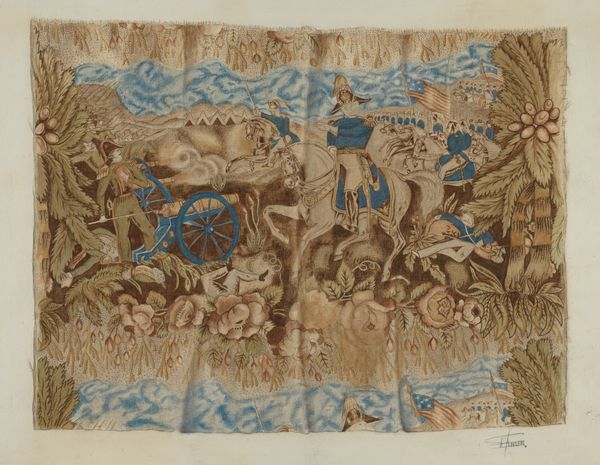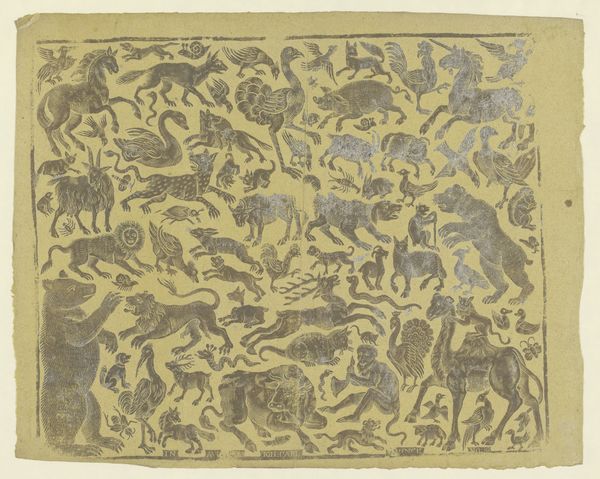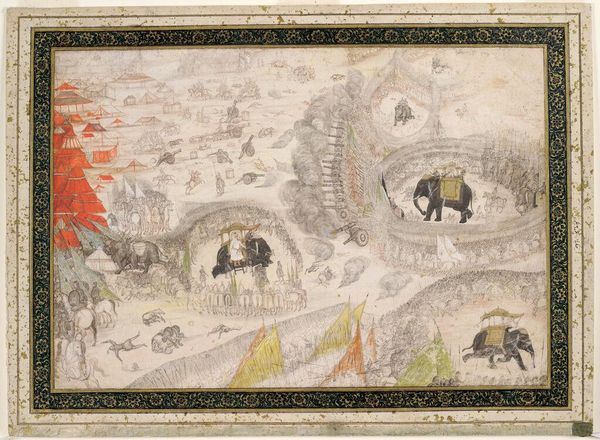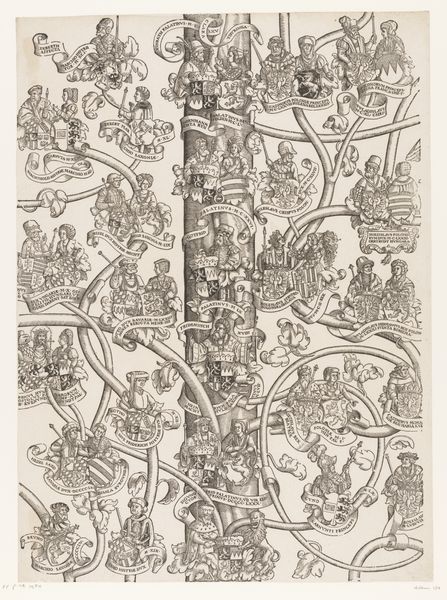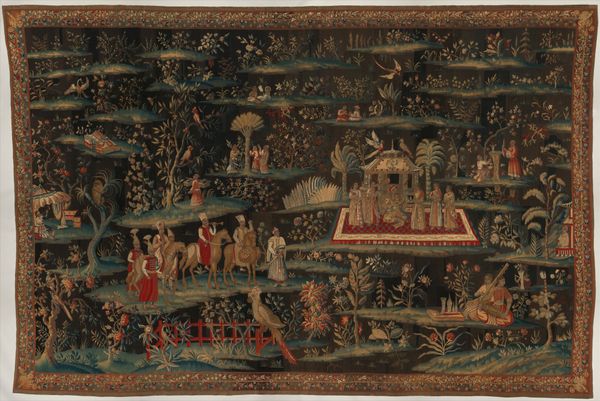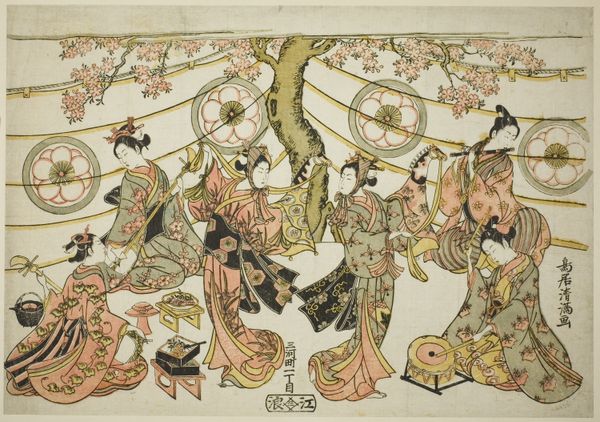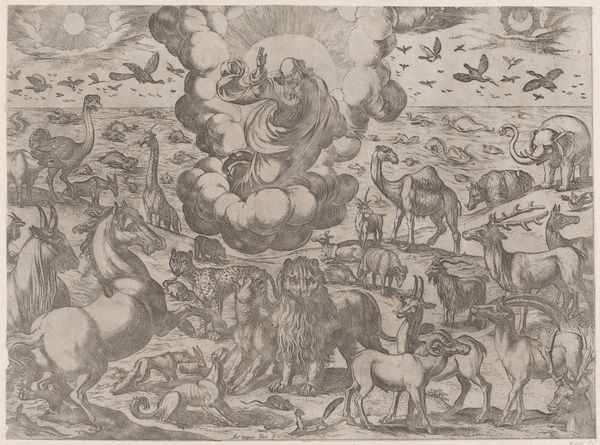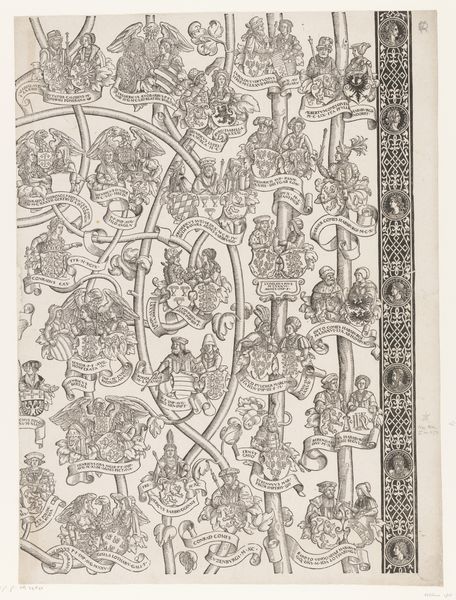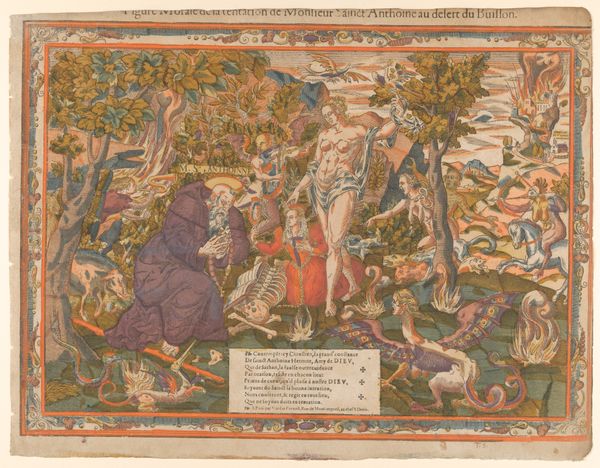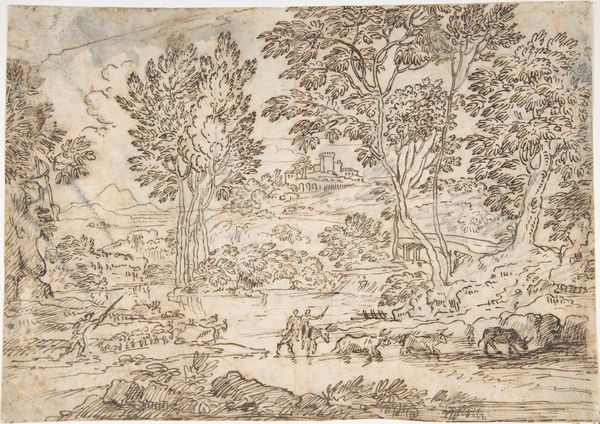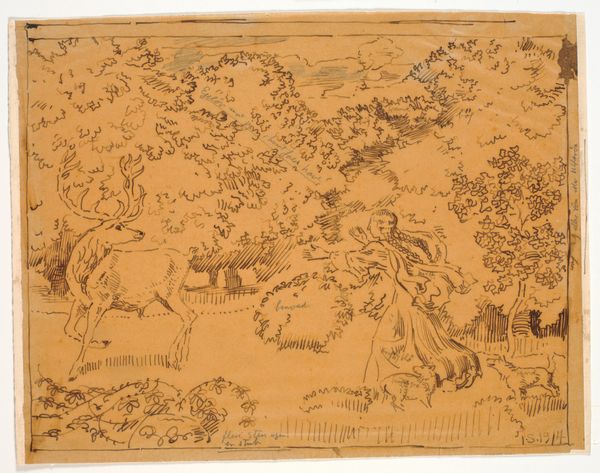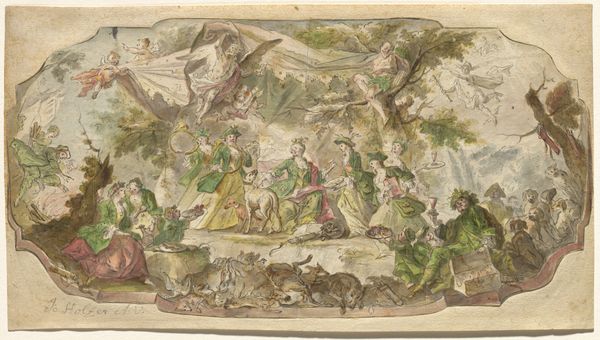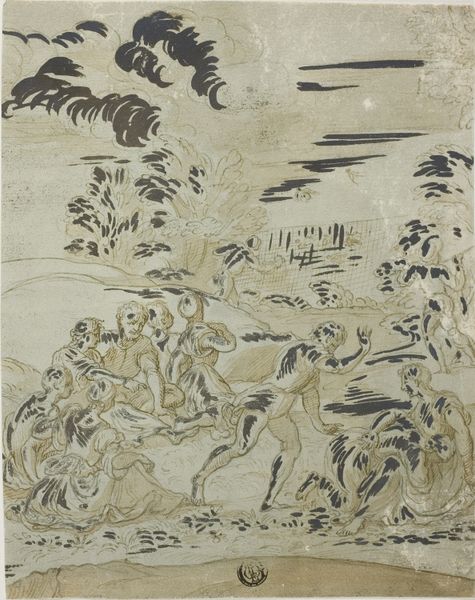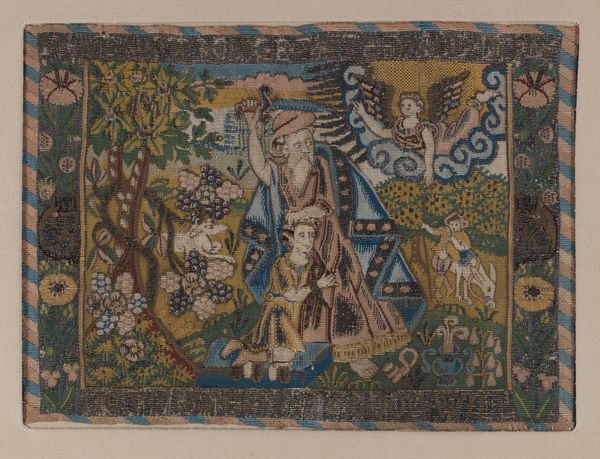
drawing, ink, chalk, graphite
#
drawing
#
baroque
#
landscape
#
ink
#
chalk
#
graphite
#
history-painting
Copyright: Public Domain
Curator: At first glance, the intricacy of this piece captivates me. It's got such an unusual delicate quality to it. Editor: Indeed! This is Rudolph Wilhelm von Stubenberg’s depiction of "Antonius nimmt Abschied von Cleopatra," a historical scene rendered with ink, graphite, and chalk. The baroque style evokes the opulence and drama of the era, while the composition... it's almost like looking through a paper-cut diorama. Curator: A diorama, exactly! It’s theatrical in a very intimate way, wouldn’t you say? The stark contrast of light against the dark backdrop—that rust color really makes those trees sing. Editor: The artist really plays with that light to underscore the pathos of the historical encounter. In the historical context of the piece, you begin to question how the artist uses visual rhetoric to stage political narratives of power. Curator: Absolutely, especially the ship – that ornate vessel floating away hints at departure and decay of a relationship and perhaps even an empire. Stubenberg isn't just documenting history, but constructing his view of that past, how fascinating! I like to think, what kind of social setting allowed von Stubenberg to make such detailed studies of history and visual rhetoric at all. Editor: What I find striking is that choice of depicting a monumental scene, so tiny. Almost like a hidden theater where fate unfolds behind closed doors. So what you might think of power, and monumentality collapses into intimacy. Curator: It shrinks these historical figures to players, yes, emphasizing the personal costs over the grand political stage. That touches on what truly matters to us today. Editor: Right! These grand historical events truly depend on human encounters, emotions, betrayals... And perhaps Stubenberg understood that. Curator: In short, it leaves you contemplating the intricate dance between history, narrative, and emotional experience. Editor: And the fragile balance of power... quite poignant.
Comments
No comments
Be the first to comment and join the conversation on the ultimate creative platform.
